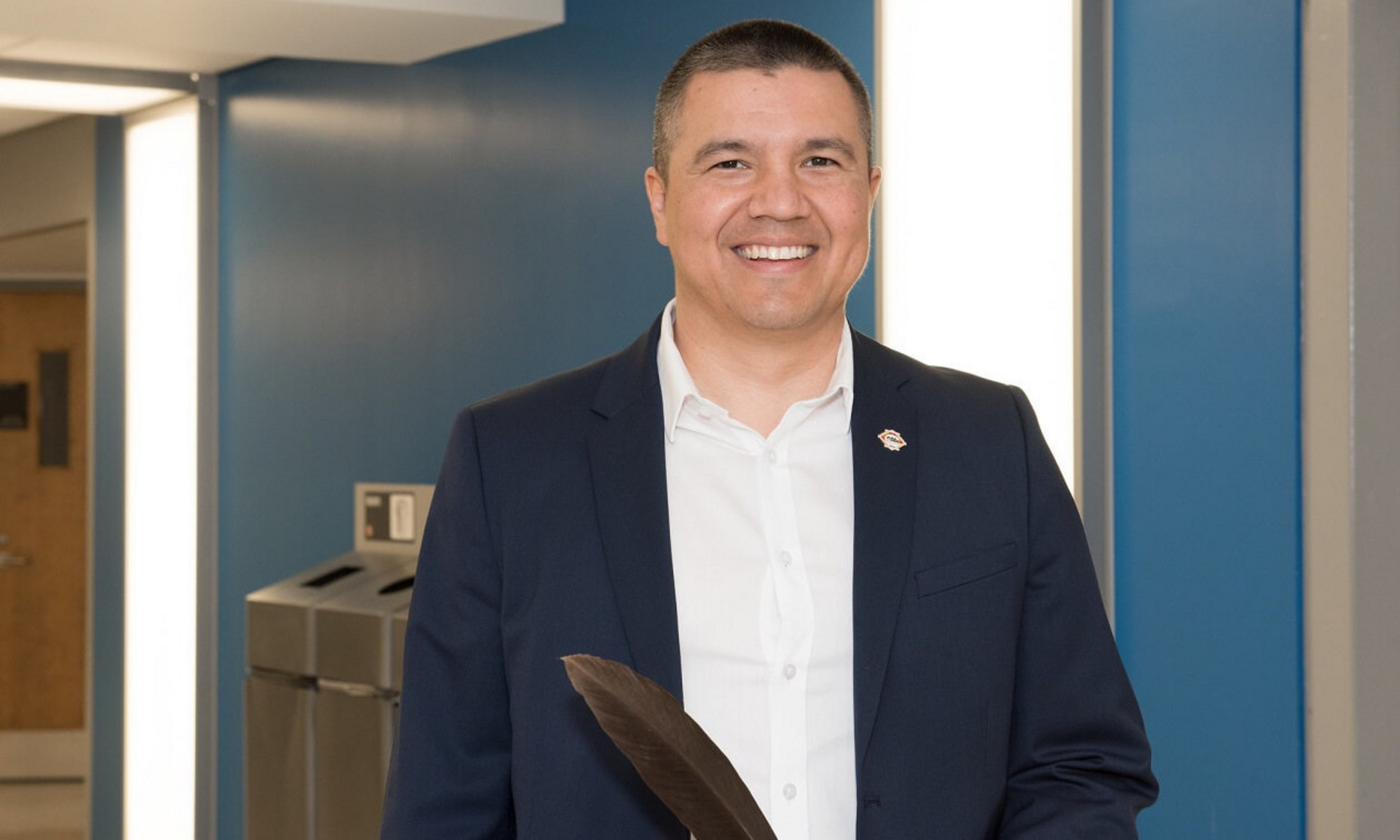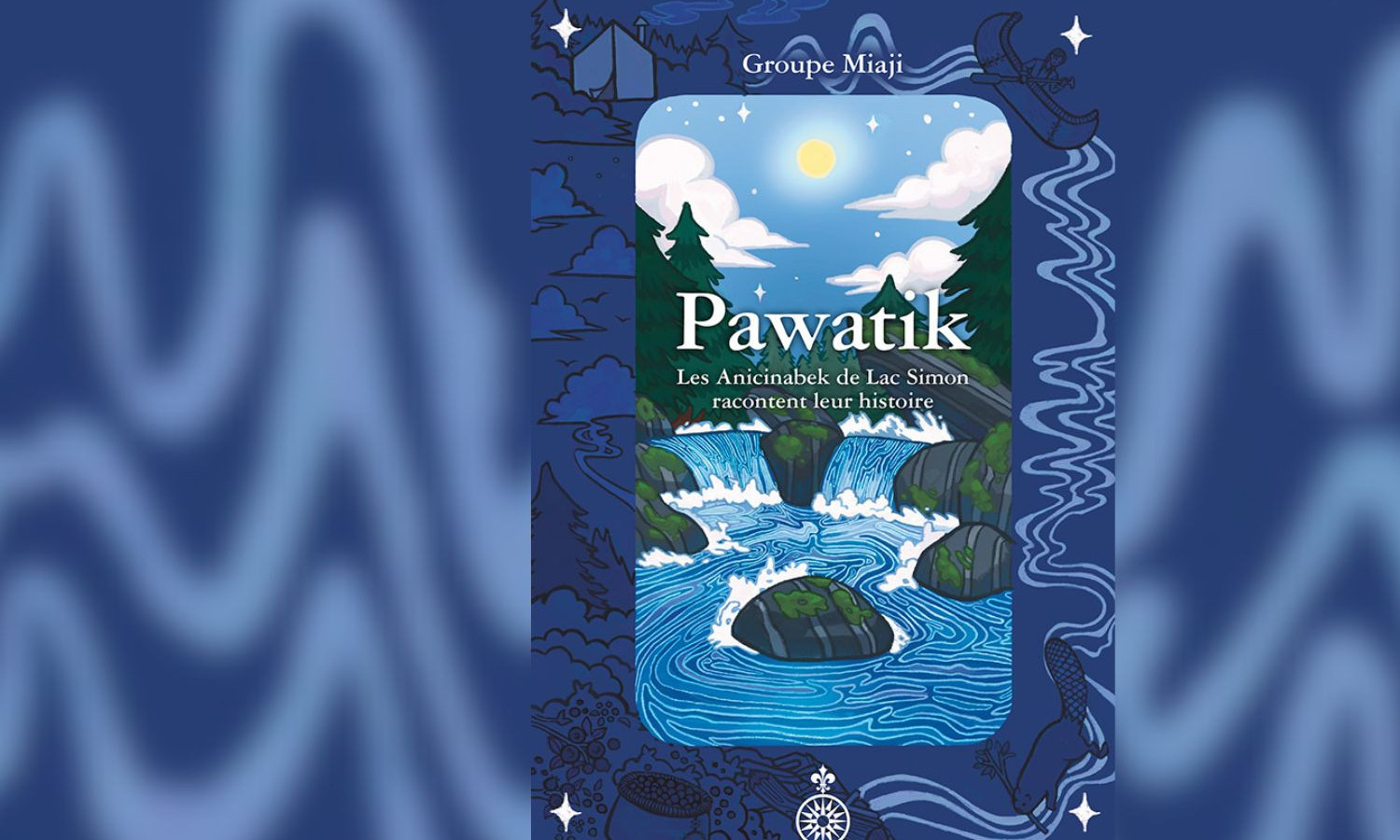Constant Awashish calls for reconciliation

“My duty as Grand Chief is not only to make representations to government and defend our members’ rights and the integrity of our land, but also to raise public awareness of Indigenous issues,” said Constant Awashish, Grand Chief of the Atikamekw Nation, in a talk on Indigenous self-determination at the University of Montreal on April 28.
“We need to build harmonious relations between Indigenous and non-Indigenous people at the University of Montreal,” said Samuel Rainville, advisor on relations with First Peoples at UdeM. Michel Janosz, dean of Continuing Education, agreed: “The paths to reconciliation are many and winding. We must walk them with an open mind and an open heart, an openness rooted in clear-sighted knowledge of ourselves and the other.”
Allies and partners at first
When Europeans first set foot in Canada in 1534, with Jacques Cartier first voyage, the Indigenous people welcomed them. "Our ancestors helped them and showed them how to survive," Awashish recalled. "They knew the land and taught the Europeans to hunt and fish. They brought them into our communities, into our villages. Some of the Europeans married Indigenous people and there was a lot of mixing. Indigenous people and Europeans were allies, partners in a new adventure-both trading partners and military allies."
In an early example of legal pluralism in Canada, the Indigenous and European legal systems coexisted under the Two Row Wampum Treaty, which subsequently lapsed.
Things change in the 19th century
“Imagine you welcome a person into your home and offer to put them up,” said Awashish. “They pick the most spacious room in your house. They feel so comfortable there that they invite their friends. They stay and gradually take over the other rooms, until they have driven you and your family out. Then, without consulting you, they declare that, legally, it’s their house. That’s how we felt when the Europeans took possession of the land where we had lived. But we never surrendered this mother earth, the land of our ancestors, and we are deeply attached to it.”
In 1867, Indigenous people were not invited to be part of Confederation. Section 91(24) of the Constitution Act of 1867 gave the federal government authority over Indigenous people and the Indian Act followed. Among other things, some lands were set aside for Indigenous peoples and they were forced to live on these “reserves.” Starting in the early 19th century, the Department of Indian Affairs promoted the creation of residential schools to evangelize and assimilate Indigenous children. The Atikamekw attended these schools later, from 1955 until the 1990s.
“It is important to know this history in order to dispel prejudices about Indigenous people and not see them solely through the lens of the Oka crisis,” Awashish argued.
Recovering the original spirit of collaboration
Canada has a labour shortage, particularly in the industrial and agricultural sectors. The Atikamekw would be happy to fill these positions if they felt they were part of the Canadian community, Awashish suggested: “In the economy, everything is interrelated. We’d like to recover that sense of partnership, of brotherhood, so we can work together for the benefit of the community. Our goal is to regain our place in society as allies, collaborators and partners. We would also like to be allies in defending our natural resources. Forty years ago, during the Quiet Revolution, French-speaking Quebecers demanded the same rights as Anglophones. Today, we should heed Quebec’s motto, Je me souviens, and apply it to First Nations people in a spirit of reconciliation.”



